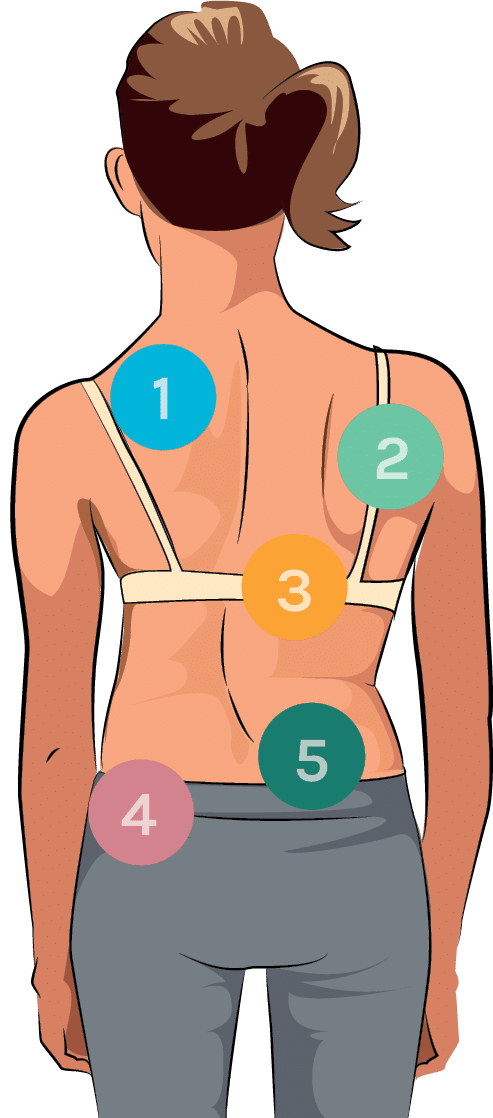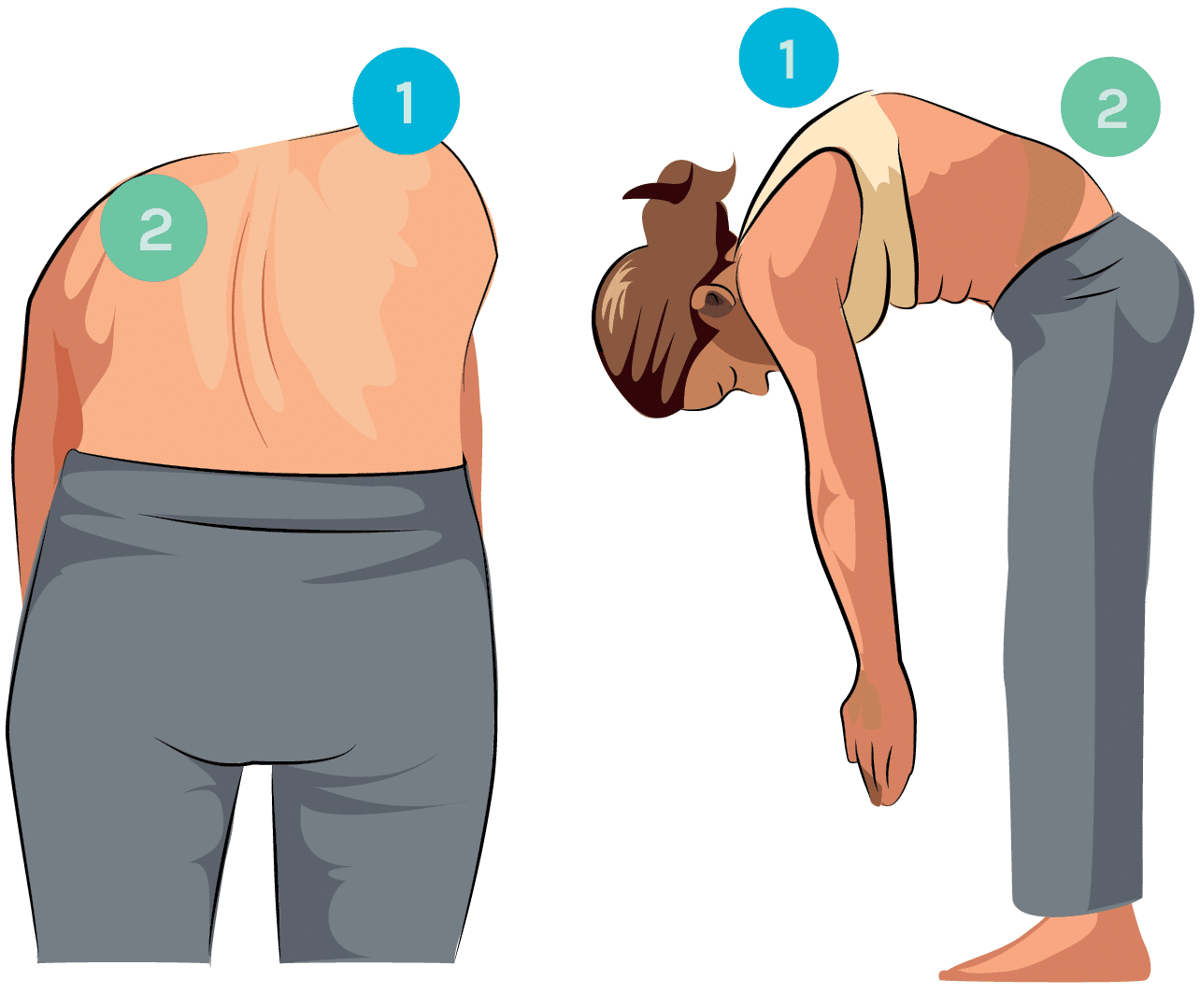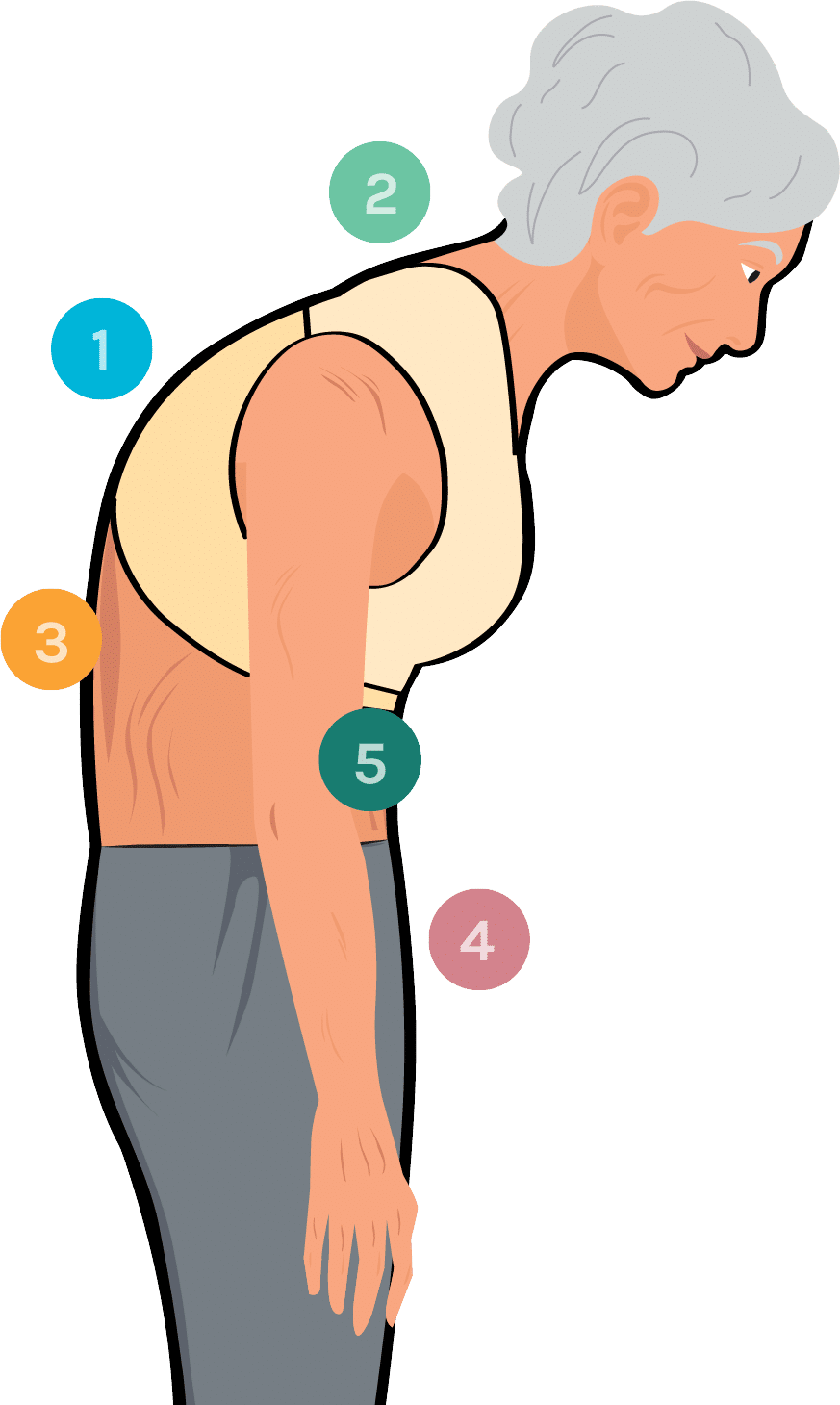How to Detect Scoliosis
Recognising Scoliosis
There are a number of ‘warning signs’ to look for to help indicate that perhaps you or someone you know has scoliosis. These can vary between children and adults. Use the cues below to guide you in recognising possible early warning signs. Alternatively you can use our web based screening tool, ScoliScreen.
Should you notice any one or more of these signs, it’s important to consult a trained Scoliosis Clinician for a full assessment. Contact us.
For Children and Adolescents
Regular checking for the signs of scoliosis in growing children and teens can lead to early detection and better treatment outcomes. During periods of rapid growth, it’s especially important to keep an eye out for any changes
Standing Assessment From the Back
Standing in a relaxed neutral posture, feet slightly apart and arms dangling by their side.
Use these cues as a guide for early warning signs:
- Uneven shoulders
- One prominent shoulder blade
- A visible curve
- Uneven hips
- Asymmetrical waist


Forward Bending Assessment
Bending forward with feet together and knees straight, arms dangling together with fingers pointing down.
Use the cues below as a guide for early warning signs:
- Upper back hump
- Lower back hump
For Older Adults
Scoliosis is often thought of as a condition which only affects teenagers. In fact, scoliosis can develop at any time, including adulthood.
With an ageing population worldwide, the prevalence of degenerative conditions such as scoliosis is increasing.
Regular checks of adults for the signs of scoliosis is important. Early warning signs may include:
- Forward lean or forward slump
- Loss of standing or sitting height
- Pain
- Balance issues or increase in falls
- Lean to one side
If you notice anything unusual, please get in touch. It’s never too late to get assessed and discuss possible treatment.


